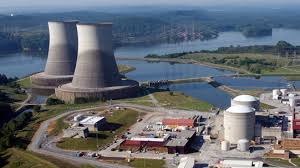Zambia is going Nuclear
Zambia’s electricity mix is dominated by hydro generations. Large and mini-hydropower stations account for 94% of the installed capacity. Although the total national installed capacity is about 2,400MW, available power has tremendously dropped resulting in a deficit of 700MW. The Zambian government aims to increase the electrification rate from 25% to 66% with 90% for urban and 50% of rural areas. To achieve this objective, it focuses an extension of the power grid and current large-scale power plants.
The government decision to make industrialisation the key to economic development, Zambia’s need for an alternative source of energy has become more urgent. The Zambian government has signed four memoranda of Understanding with Rosatom of Russia to lay the groundwork to build nuclear power plant in Zambia which it hopes may end the load shedding.

While addressing the parliament on Thursday, Dec 8,2016, President Edgar Lungu announced a bold new energy strategy. Zambia has set out on an economic diversification of energy by involving nuclear energy. It is, therefore, imperative that the country starts thinking away from hydropower generations and pursue other viable options.
The three energy memoranda and one project development agreement with Russia signify the process to develop the capacity in Zambia. The deal, which is not legally binding, sets out a 15-year nuclear co-operation plan, with the eventual goal of constructing a nuclear gigawatt nuclear power plant. In addition, Rosatom will help train Zambian nuclear engineers, develop a nuclear energy regulator, and spearhead nuclear research in the country. Local media estimate the total value of the deal to be $10-billion.
Keeping in mind the country’s energy needs, over the long run, it expects to construct a nuclear science technology centre. This centre would essentially assist Zambia to safely and effectively move into the nuclear industry and allow them to master nuclear technologies and help develop workforce capacity in the nuclear sector.
Along with this, the country is also trying viable options to address its energy deficit. The country. A german company wants to invest $500 million in solar plants. While another group of investors from Italy are looking to set up a nuclear plant in Lusaka- South multi Facility Economic Zone, and two others in the Western and North-Western province.
Developed economies around the world are using nuclear power to drive their growth and it is time Zambia set out on that path.
